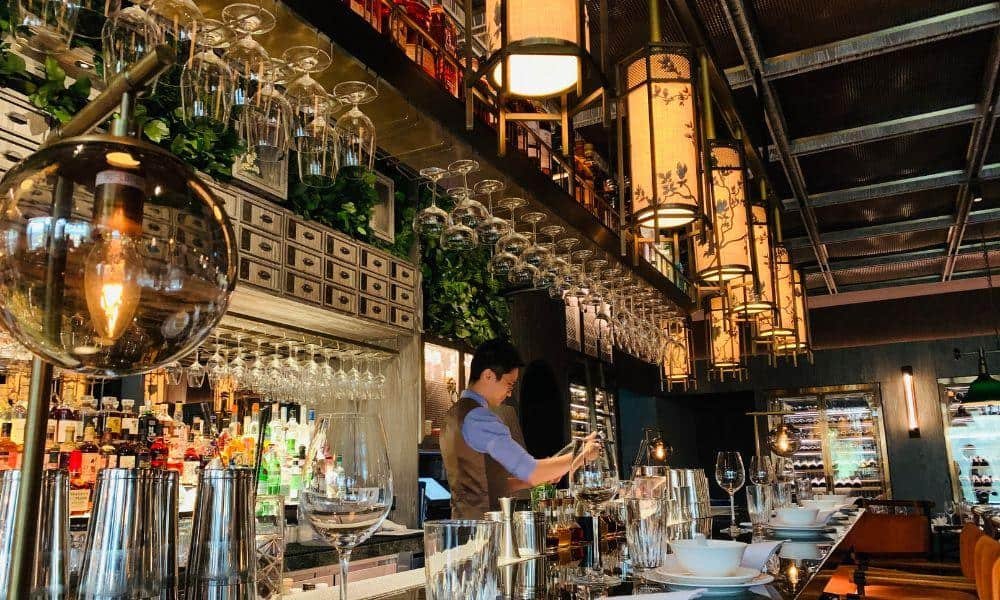In the digital age, the threat of cyberattacks is a significant concern for businesses of all sizes, including restaurants. As restaurants increasingly rely on technology for operations, reservations, payments, and customer data management, they become prime targets for cyber threats. Cyber Liability Insurance is designed to protect businesses from the financial impacts of cyberattacks, data breaches, and other technology-related risks. This comprehensive guide explores what Cyber Liability Insurance covers, why it’s crucial for restaurants, and how to choose the right policy for your establishment.
What is Cyber Liability Insurance?
Cyber Liability Insurance is a type of insurance that provides financial protection against the risks associated with cyberattacks and data breaches. It covers various expenses related to data loss, theft, and other cyber incidents that can impact a business’s operations, reputation, and financial stability. This coverage is essential for restaurants that handle sensitive customer information, such as payment details, reservation records, and personal data.
Key Coverage Areas
- Data Breach Response: Covers the costs associated with responding to a data breach, including notification to affected individuals, credit monitoring services, and identity theft protection. For restaurants, this includes informing customers if their personal or payment information has been compromised.
- Legal Costs and Defense: Provides coverage for legal expenses related to lawsuits arising from a data breach or cyberattack. This includes attorney fees, court costs, and settlements or judgments if your restaurant is sued for failing to protect customer data.
- Regulatory Fines and Penalties: Covers fines and penalties imposed by regulatory bodies for non-compliance with data protection laws and regulations. This is particularly relevant if your restaurant is subject to regulations such as GDPR (General Data Protection Regulation) or CCPA (California Consumer Privacy Act).
- Data Recovery and Restoration: Covers the costs associated with recovering lost or damaged data and restoring your IT systems to their pre-incident state. This includes expenses for data recovery services, IT consultant fees, and system repairs.
- Business Interruption: Provides coverage for lost income and additional expenses incurred due to a cyberattack that disrupts your restaurant’s operations. This can include downtime costs and the need to hire temporary staff or rent equipment.
- Cyber Extortion: Covers costs related to cyber extortion threats, such as ransomware attacks. This includes payments to attackers and expenses related to managing the extortion demands and mitigating the impact on your business.
- Media Liability: Provides protection against claims related to content published on your restaurant’s website or social media platforms. This includes defamation, copyright infringement, or other media-related claims arising from online content.
- Vendor and Third-Party Risks: Covers claims related to data breaches or cyber incidents involving third-party vendors or service providers. If a vendor’s security lapse impacts your restaurant, this coverage helps manage associated risks and liabilities.
Why is Cyber Liability Insurance Important for Restaurants?
Restaurants are increasingly integrating digital systems into their operations, making them vulnerable to cyber risks. Here’s why Cyber Liability Insurance is essential for restaurants:
- Protection Against Financial Loss: Cyberattacks and data breaches can result in substantial financial losses, including costs for breach response, legal fees, and regulatory fines. Cyber Liability Insurance helps manage these costs, protecting your restaurant’s financial health.
- Customer Trust and Reputation: Data breaches can damage your restaurant’s reputation and erode customer trust. Cyber Liability Insurance helps cover the costs of managing the breach and restoring customer confidence, which is crucial for maintaining your restaurant’s reputation.
- Regulatory Compliance: Compliance with data protection regulations is mandatory for businesses that handle customer data. Cyber Liability Insurance helps cover fines and penalties associated with non-compliance, ensuring that your restaurant adheres to legal requirements.
- Operational Continuity: Cyberattacks can disrupt your restaurant’s operations, leading to downtime and lost revenue. Cyber Liability Insurance provides coverage for business interruption, helping you recover lost income and resume operations promptly.
- Mitigation of Extortion Risks: Ransomware attacks and other forms of cyber extortion are becoming more common. Cyber Liability Insurance offers protection against extortion threats and helps manage the costs of dealing with such incidents.
- Vendor Management: Restaurants often rely on third-party vendors for payment processing, reservations, and other services. Cyber Liability Insurance covers risks associated with vendor-related data breaches, providing a layer of protection against third-party vulnerabilities.
How to Choose the Right Cyber Liability Insurance Policy
Selecting the appropriate Cyber Liability Insurance policy involves several key considerations to ensure that your restaurant’s specific needs are met:
- Assess Your Cyber Risks: Evaluate the types of data and digital systems your restaurant uses, including payment processing, reservation systems, and customer databases. Understanding your cyber risks helps determine the coverage needed.
- Determine Coverage Limits: Coverage limits refer to the maximum amount your insurer will pay for a claim. Ensure that your policy provides adequate limits based on the potential costs of a data breach or cyberattack. Higher limits may be necessary for restaurants with extensive digital operations or large customer bases.
- Review Policy Exclusions: Be aware of any exclusions or limitations in your policy. Common exclusions might include damages related to internal employee fraud or pre-existing security vulnerabilities. Understanding these exclusions helps identify potential gaps in coverage.
- Compare Policies: Different insurers offer varying levels of coverage and pricing for Cyber Liability Insurance. Compare policies from multiple providers to find one that best suits your restaurant’s needs and budget. An insurance broker specializing in cyber insurance can assist with this process.
- Consider Optional Coverages: Depending on your restaurant’s specific needs, you might need additional coverages such as cyber extortion or media liability. Evaluate your requirements and consider adding these optional coverages to enhance your policy.
- Implement Cybersecurity Measures: While Cyber Liability Insurance provides essential protection, implementing strong cybersecurity measures can help reduce the risk of cyber incidents. Invest in security systems, employee training, and regular IT audits to bolster your restaurant’s defenses.
- Review and Update Your Policy: As your restaurant’s digital operations evolve, update your Cyber Liability Insurance policy accordingly. Regular reviews ensure that your coverage remains adequate and relevant to your changing business needs.
Real-Life Examples and Case Studies
Understanding the impact of Cyber Liability Insurance can be clarified through real-life examples and case studies:
- Case Study 1: Payment Data Breach: A restaurant experienced a data breach where customers’ payment information was stolen by hackers. The Cyber Liability Insurance policy covered the costs of notifying affected customers, providing credit monitoring services, and dealing with legal claims. The insurance helped the restaurant manage the financial impact and restore customer trust.
- Case Study 2: Ransomware Attack: A restaurant’s computer systems were encrypted by ransomware, disrupting operations and demanding a ransom payment. The Cyber Liability Insurance policy covered the cost of the ransom payment, data recovery services, and business interruption losses. This coverage allowed the restaurant to recover quickly and resume normal operations.
- Case Study 3: Social Media Defamation: A negative review posted on social media led to a defamation claim against the restaurant. The Cyber Liability Insurance policy covered the legal defense costs and settlement related to the claim. This coverage helped mitigate the financial impact of the defamation case.
Conclusion
Cyber Liability Insurance is a critical component of restaurant insurance, providing essential protection against the financial impacts of cyberattacks, data breaches, and other technology-related risks. By understanding the key coverage areas, assessing your specific needs, and selecting the right policy, you can safeguard your restaurant’s operations, reputation, and financial stability. Investing in comprehensive Cyber Liability Insurance ensures that your restaurant is well-prepared to handle the evolving landscape of cyber threats, allowing you to focus on delivering exceptional service and growing your business.



